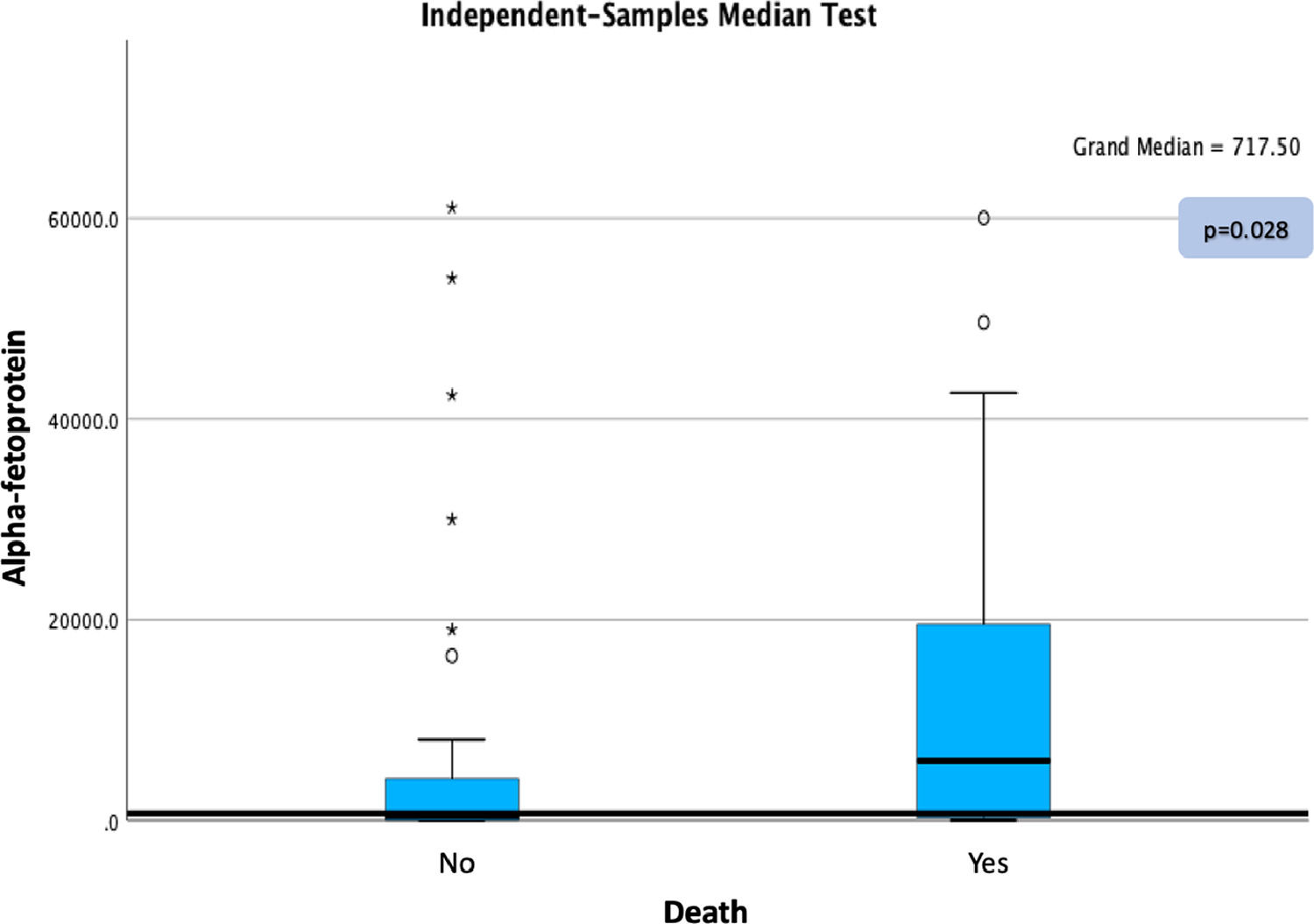
Abstracts Asociación Mexicana del Hígado (AMH) 2023
More infoHepatocellular carcinoma (HCC) represents more than 80% of liver cancers with a direct impact on morbidity and mortality. Viral hepatitis is responsible for most cases, in addition to the progression of liver cirrhosis from other causes. There are various risk factors of importance for identification and screening programs for adults at risk of HCC. The aim of this study was to characterize the clinical and epidemiological profile of patients diagnosed with HCC.
Materials and PatientsProspective study of patients diagnosed with HCC. Data from clinical history, laboratory results, histopathology, and imaging studies were obtained. Univariate analyzes were carried out and Kolmogorov-Smirnov and Shapiro-Wilk normality tests were performed for continuous variables to determine the appropriate statistical test, performing bivariate analyzes with the Mann-Whitney or T-Student test. Non-parametric correlations were determined by Rho Spearman calculated with a 95% confidence interval and statistical significance p<0.05.
ResultsWe identified 50 patients (n=50) with HCC with a mean age of diagnosis 66 years (SD ± 12.91), 70% predominating in men and 88% with liver cirrhosis, the majority being Child-Pugh C (34%). The main etiology of liver cirrhosis was hepatitis C (42%) and alcohol consumption (30%); others were MASLD 4% and hepatitis B 4%. The performance status by ECOG scale was (0-2) in 70% and (3-4) in 30%. Most patients were identified in Barcelona (BCLC) D (38%) and all were diagnosed by imaging criteria or histopathology combined AFP (alpha-fetoprotein) levels. Biopsies were performed in 34% of the patients, with a predominance of moderately differentiated type (14%), identifying metastases in 8%. Mortality was 28% presenting statistical significance with AFP levels (p=0.028) and hepatic encephalopathy (p=0.004). The ECOG scale showed a positive correlation with the presence of ascites (r=.567, p= <0.001), hepatic encephalopathy (r=.337, p=0.017) and Child-Pugh Scale (r=0.615, p=<0.001).
ConclusionsMost cases were identified at an advanced stage, highlighting the importance of early detection, with screening programs focused on eliminating risk factors, treatment of viral hepatitis, cessation of alcohol consumption, and periodic follow-up of patients with liver cirrhosis to prevent disease progression and impacts on quality of life.
Ethical statement
The protocol was registered and approved by the Ethics Committee. The identity of the patients is protected. Consentment was obtained.
Declaration of interests
None
Funding
This research did not receive any specific grant from funding agencies in the public, commercial, or not-for-profit sectors.
Figure 1. Relationship of AFP Levels with Mortality
Table 1 Correlation of ECOG Performance Status Scale with Liver Decompensation












